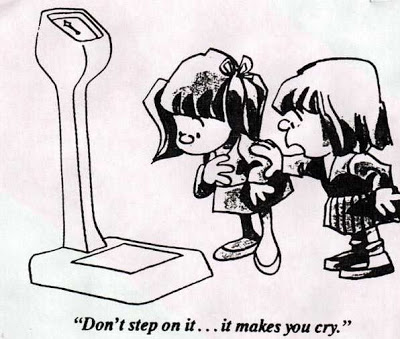Lose Weight > Common Sense To Lose Weight > Common Sense Article > Enviornmental Hypocrites On The Left
Enviornmental Hypocrites On The Left
More recently emerged is the concept of "environmental hypocrites." The phrases "limousine liberals" and "Lexus liberals" already implied "environmental hypocrites" - the assertion being that many environmentalists preach clean energy, simple living, and use of mass transportation while engaging in none of those things. However, "environmental hypocrite" is a narrower charge that excludes non-environmental social issues such as low-income housing, worker rights, and gun control.
The subject of environmental hypocrisy made an appearance on Fox's Hannity and Colmes show a few years back. Robert F. Kennedy, Jr., one of the country's most prominent environmentalists, came on the show and spoke in support of high mileage vehicles but then was forced to admit that he himself sometimes travels on a personal jet - the single most wasteful mode of transport on the planet.
We can also find fault with Kennedy and others in his family for the fact that they generally support wind power and other sustainable energy technologies but oppose Cape Wind, an off-shore wind-turbine project that would bring clean, renewable energy to a coastal area where they happen to have residential property. Their argument that this is a pristine marine area that should be left visually unsullied by wind turbines is largely hypocritical nonsense.
The case of Robert F. Kennedy, Jr. is interesting. He is undeniably one of the most effective environmental advocates on the scene today, and his contribution to environmental progress is undeniable. But he also invites criticism for things like his NIMBYistic opposition to the Cape Wind project. RFK Jr. is a classic case study in how great men can be full of complexity and sometimes contradiction. They are never perfect.
More recently, Al Gore has come under attack for encouraging the world to reduce greenhouse gas emissions (lest we suffer the perils of picture of Al Gore in front of large screen display of earth from space global warming), while his family's home is reported to suck down 20 times more electricity than the average American home. A Gore spokesperson points out that Mr. Gore buys green power and carbon offsets, so in theory he is not adding to the greenhouse-gas problem he warns us of. But the reported total level of his home's energy use is very high in absolute terms. Global warming is a problem that will largely have to be solved through energy conservation, and Mr. Gore is not setting a good example in that regard.
Do these backstories make Kennedy and Gore environmental hypocrites? Yeah, to some extent.
Gore and Kennedy are both doing good work on behalf of the environment - they rank in the Top 10 of the world's most effective environmental advocates. And they both no doubt make plenty of eco-friendly lifestyle choices. But to be a high-profile environmentalist and not fully walk the talk - even if only in terms of the perception they create - is hugely problematic. The public does not like hypocrites, environmental or otherwise, and giving opponents of environmental progress the opportunity to throw hypocritical mud on your righteous arguments reduces the power of your message and distracts people from the real issues. For some in the audience, these slight negatives weigh heavily against the overwhelmingly positive work Kennedy and Gore do.
Is it possible to be a high-profile environmentalist and live a truly environmentally friendly life? Sure. Hollywood actor Ed Begley, Jr., does it. He encourages everyone to reduce energy use, to install sustainable energy technologies like solar panels, to recycle, and to use alternate transportation. He himself lives in a modest two-bedroom house - unheard of among Hollywood stars - and he does all of the eco-friendly things he promotes to others. His house is covered in solar panels, he has a bicycle-powered toaster, and a solar backpack recharges his cell phone. He uses only compact fluorescent bulbs. He recycles relentlessly. He has an electric vehicle and a Prius but still prefers to walk, ride his bike, or take public transportation to his destinations - all modes of travel that are even more eco-friendly than his already green vehicles.
Ed Begley's home is not particularly beautiful as defined by the standards of the typical Hollywood star, and his lifestyle is not notably elegant. But his home is very functional and his way of living is very efficient. He shuns ego-driven luxury and personal convenience, and he does more than most people - big stars or hoi polloi - to strive for a clean environment and a sustainable future. He's as far from being an environmental hypocrite as one can get.
Al Gore is not the only environmentalist with a cushy home. CEOs of environmental groups sometimes "live big" too. Nature Conservancy President Steven J. McCormick caught some flack a few years back for his mini-mansion (as well as his $420,000 compensation package).
Mansions are basically extra-large houses, and they're almost always resource hogs:
1) They are usually sited on large amounts of land (which could otherwise have been kept as natural habitat).
2) They require huge amounts of natural resources for construction.
3) They use large amounts of energy on a day-to-day basis.
To avoid the environmental hypocrite label, any mansion-dwelling eco-bigwigs out there are well advised to downsize and get with their own program.
Environmental activists also sometimes come under fire for jetting around the world to campaign for environmental issues or attend conferences. It's true that even flying coach on a modern, efficient passenger plane produces a lot of greenhouse gases per passenger mile. So, is it environmentally hypocritical to warn an audience of global warming dangers after having just flown 5,000 miles?
The answer in a moment. First we must point out two things.
1) Environmentalists are well aware of this sort of contradiction and mostly strive to minimize their impact as they go about their activities.
2) This sort of criticism usually comes from eco-refusniks and is used as a tool to distract the public from the real issues. Contrary to the assertions of those who deride environmental regulations and environmentalists, greenies do not want to deprive everyone of the benefits of modern living and send them back to living in caves. To suggest that we either must continue overtaxing the planet or revert back to medieval ways is a false choice. There are many, many ways society can go forward into a sustainable future without giving up the important comforts of modern living. Those who suggest otherwise are environmental hypocrites themselves.
With this in mind, we declare that eco-folks who engage in a reasonable amount of travel to accomplish good works are not being environmental hypocrites. We'd be somewhat more inclined to call an eco-warrior an environmental hypocrite for flying off to a tropical vacation, but taking a jumbo jet to a conference of people who are trying to save the uber-capitalist world from itself is not a sin and not hypocritical.
That said, we'd like to see more virtual conferences being held!
Related Articles
-
Quick Weight Loss Tips - Weight Loss By Calorie Shifting
Many people are looking so hard for an amazing quick weight loss secre
-
Boot Camp Exercises For A Beautiful You!
Most women aspire to look slim and beautiful. Beauty is regarded as an
-
Christian Weight Loss Will Not Happen Overnight
Christian weight loss is simple, burn more calories then you consume.
-
Why Its Important for Teens to Keep Fit
There are many good reasons why people should try to keep as fit a
-
Flat Belly Diet Recipes
Losing that additional pound of flesh not merely enables you to l
-
Alcohol And Weight Gain - The Truth And Lies
There are a lot of misconceptions about alcohol and weight gain. It is
- DON'T MISS
- Is Weight Loss & Sleeping Habit Related?
- The Most Important Thing In Your Weight Lifting Program
- Are Your Kids Sabotaging Your Weight Loss?
- Urea Price Will Held Stability Primarily
- How To Lose Stomach Fat Fast - 2 Best Ways For Losing Stomach Fat Fast: Proper Diet & Exercise
- How To Stop Food Cravings For Faster Weight Loss
- Fastest Way To Lose Belly Fat For Women
- An Interesting Look At Mini Gastric Bypass Surgery
- Slash Diabetes Risk with Natural Diet and Fresh Vegetables
- Government restrictions on weight loss surgeries limit access for poor




